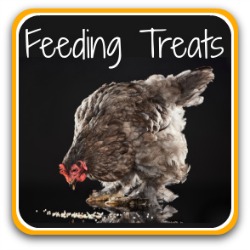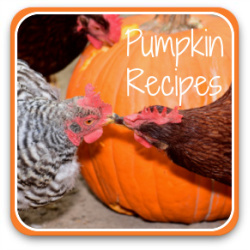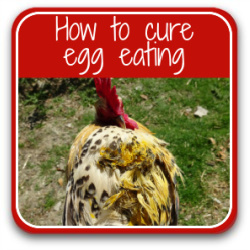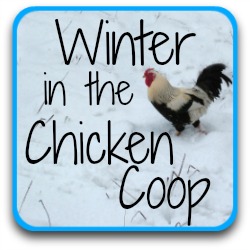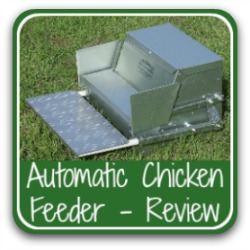Best holiday recipes for chicken treats.
Want to treat your chickens at Thanksgiving or Christmas?
We all like to make holidays special for our chickens as well as our family and friends. After all, they're part of the household.
But what, of all the food we eat ourselves, can be shared with our flock, and what should remain on our own plates?
These recipes take some of the ingredients of a typical Thanksgiving or Christmas dinner and use them to create a special treat your chickens will love.
Be aware, though: giving chickens too many treats will damage their health. Poultry, just like people, need to eat their own healthy food first.
Treats should never make up more than 10% of their intake.
Feeding these recipes once or twice at Thanksgiving or Christmas is fine. The ingredients make plenty for a small flock of four or five.
European Feed Regulations.
Please note: I am required to tell you that currently in Europe, including the UK, regulations state that chickens should not be fed any foods which have been in a kitchen, whether the kitchen is a professional or a domestic one.
This includes meats, vegetables and
any kitchen scraps and it applies to all backyard chickens, however large or small the flock, and whether or not
you sell their eggs or meat to others.
Furthermore, the sale of dried mealworms for consumption by chickens is also illegal, although you will still find the product available, labelled 'for birds'.
This is related to concerns about the transmission of disease, and mealworms being imported from countries where quality control is poor.
The best Thanksgiving or Christmas dinner treat for chickens.
To create a festive dinner for chickens, we'll use some of the goodies we'd use for ourselves, and make them chicken friendly.

The best main ingredients.
Turkey: Thanksgiving and Christmas would not be the same without turkey. Does it seem strange to feed meat to chickens, though?
Many people wrongly assume chickens to be vegetarian. If you've ever seen one of yours chase after a mouse, lizard or even just a worm, you'll know that's not the case.
Chickens adore meat. A relatively fat-free meat like turkey which is high in protein is particularly good at this time of year, when chickens need extra to cope with moulting and the colder weather.
Some people prefer to offer it in the form of turkey flavoured cat food, but actually fresh turkey is far preferable. It doesn't have any of the added ingredients found in processed foods.
I use inexpensive turkey bits - or use some of your leftovers.
Sweet potato: use this rather than the mashed white potato you'd normally see on your holiday table. Any signs of white potatoes turning green is not good news for chickens - they contain solanine, which is poisonous to poultry.
Sweet potato, on the other hand, contains large amounts of Vitamin A, which helps chickens deal with stressful conditions like cold weather and moulting - critical at this time of year.
Don't peel the sweet potatoes. It's perfectly safe and much of the goodness is just underneath the skin.
 Baked sweet potato flesh is easily pushed into a mould.
Baked sweet potato flesh is easily pushed into a mould.Cranberries: high in Vitamins B and C plus potassium, cranberries contribute to healthy bone and feather growth. Either fresh or dried cranberries work.
Can't get cranberries? No problem. Any berries will be an excellent addition. I use frozen blueberries and strawberries. They make a great addition to the Christmas breakfast recipes.
Pumpkin: fresh pumpkin, not pumpkin pie! Its high Vitamin A content helps boost the immune system.
Garlic: this is entirely optional. I live in Italy, so garlic goes into almost everything! Proven to protect against bacteria, it's another healthy option to add.
And no, it doesn't make their eggs taste of garlic!

The best Thanksgiving and Christmas vegetables and fruit to use.
Virtually any vegetable you'd have at Thanksgiving or Christmas will be good for this recipe. Add whatever you have of...
- carrots - mine love cooked baby carrots, or try shredding or spiralising them
- peas - full of vitamin A
- sweetcorn - high in vitamin C, useful when chickens are stressed by cold weather and moulting
- celery tops - the leafy bit we often discard - are brimming with antioxidants, critical for healthy cell growth
- cucumbers - high in vitamin K, which aids bone growth
- salad leftovers - including tomatoes (it's the tomato plant which is poisonous to chickens, not the fruit itself)
- apples - another source of vitamin C, I save some windfalls to use as winter treats. Grate or chop into small bits. If you're worried about the seeds, take a look at my article which has more details.

Which holiday foods should not be given to chickens?
This is mostly common sense. Don't feed your flock anything that's fatty or has sugar (no roast potatoes, marshmallows, chocolate or cookies please!); avoid anything with added salt, particularly gravy; no citrus or dairy based foods like milk, which they cannot digest; and no onions - they contain thiosulphate which, in quantity, causes blood disorders.
And of course, no alcohol or caffeine! Chickens should drink water only.
- For five other common foods chickens should never eat, see this article.
- And see this detailed article for a list of 20 of the most common festive foods and whether they're healthy for chickens,

My best Thanksgiving or Christmas holiday treat recipe.
This is a "mix and match" recipe. It's what I've found works, but if there's something you don't have, substitute something else.
One of the many beauties of chickens is that they really don't care what something looks like. They'll love whatever treat they're given!
Ingredients.
This serves a small flock of four to five chickens. For larger flocks just increase the quantities.
- 200 grammes (1 cup) turkey bits, cooked and shredded
- 1 large sweet potato
- 100 grammes (0.5 cup) cranberries (or other berries), fresh or dried
- 400 grammes (2 cups) of any of the vegetables listed above
- 2 tablespoons coconut oil
- 1 - 2 teaspoons black treacle (molasses).
Method.
You could literally simply plate this up onto your chickens' favourite platter for a scrummy dinner treat.
I like to make a little extra effort, so I put mine into some Thanksgiving and Christmas cookie cutters.
- Pierce the sweet potato skin five or six times, then place in a roasting dish and bake for about 50 minutes at 180°C (350°F). You can also boil, but some of the nutrients will leech into the water.
- Don't overcook - the sugars will crystallize and burn. The inside should feel soft when pierced with a skewer or knife.
- Scrape the flesh out of the skin and mash it. Push it into one of the cookie cutters and leave to one side.
 Baked sweet potato flesh makes a good Christmas tree!
Baked sweet potato flesh makes a good Christmas tree!- Shred the turkey into small, thin strips. Add to a frying pan with half a tablespoon of coconut oil and warm through until the turkey is covered.
- Remove from the heat, add the cranberries (or other berries) and stir together until everything is covered.
- Remove from the heat, press into some moulds and set to one side.
 This angel contained chopped turkey and dried berries.
This angel contained chopped turkey and dried berries.- Cook the vegetables until just tender. In a bowl, add 1 teaspoon of treacle (molases) and all the veg.
- Mix until the veg are covered in the treacle, then push them into a mould (or two!) and set to one side.
 This veggie star contained sweetcorn, green beans and baby carrots.
This veggie star contained sweetcorn, green beans and baby carrots.- Now put all your moulds together into one plate and place in the freezer for an hour or two. This chills the oil so it keeps its shape.
- Leave it in the freezer if you've made it beforehand and want to keep it for the "special day". It will keep for several weeks.
- When you're ready, simply turn out all the moulds onto one plate.
And then, let your chickens loose with it - and stand well back or get caught in the stampede!

Christmas breakfast recipes.
The recipe above is good for both holidays, but for Christmas, I like to offer my flock some special breakfast recipes.
Breakfast is an important start to the day at Christmas in Italy. Families eat together before heading to church, or opening gifts.
It's always a light meal, given the courses on offer later in the day! And it's very easy to adapt breakfast recipes for chickens.
Here are some quick, nutritious breakfast treats for your flock. Offer one at a time or, for a special day like Christmas, make up a buffet of a small portion of each.

Fishy scrambled eggs.
Eggs are a complete food, full of protein and essential vitamins. It may seem odd to feed their own eggs back to our girls, and they should certainly never be given raw egg - it can lead to egg eating, a very difficult habit to break.
Cooked eggs are fine, though.
 These scrambled eggs have chopped crab pieces added.
These scrambled eggs have chopped crab pieces added.What you need:
- One egg for every two chickens
- Fish, fresh or tinned (in water, not brine).
How to make it:
- Simply break an egg into a cup and beat it lightly with a fork. Don't add any liquid, just heat through in a pan, stirring until the egg is cooked.
- Add in some inexpensive fish - another healthy food chickens love. Christmas Eve in Italy is traditionally a seven course fish meal, so there are often leftovers from that.
- Otherwise, try using flaked tinned tuna (in water, not brine), or crabsticks cut into small pieces. A teaspoon per chicken is enough.

Devilled eggs with a twist.
Devilled eggs - everybody's favourite. In this case we won't add mayonnaise to the yolks, but instead use organic olive oil to keep the filling moist.
What you need:
- Half an egg per chicken
- Organic olive oil
- Fish flakes - tinned tuna works well with this recipe.
How to make it:
- Hard boil the eggs as usual
- Peel, slice lengthways, scoop out the yolks and put them into a cup
- Add the tuna flakes
- Mix with enough olive oil to form a smooth paste
- Fill the centre of the eggs; add some tuna flakes as topping.
 Devilled egg with tuna flakes.
Devilled egg with tuna flakes.
Overnight fruity oatmeal porridge.
Don't use milk for this recipe - chickens can't process it, and they'll be more than happy with oatmeal cooked in water.
You'll find articles on the internet saying that oats should on no account be fed to chickens. Be wary of their sources: many are written by large feed companies who, of course, would prefer you to give your chickens their product rather than inexpensive oats.
Having said that, it's right that chickens should mainly eat a balanced feed. And it's right that, in large amounts, oats can stop poultry processing some nutrients.
But for an occasional treat fed in moderation, they're fine. They're actually high in antioxidants, which help boost the immune system. And soaking them overnight breaks down their starches, making them easier to digest(4).
Adding in some fruit and treacle (molasses) increases the vitamin C content, helping the immune system even more.
Soaked oats will keep in a refrigerator for several weeks, so make a larger batch and store it to use bit by bit. Useful when Christmas morning comes and you need a fast treat for your chickens!
 This version included oats, treacle (molasses) and frozen berries left to defrost in the oats.
This version included oats, treacle (molasses) and frozen berries left to defrost in the oats.What you need:
- Organic oats
- Treacle (molasses)
- Fruit, fresh or frozen, chopped into small bits.
How to make it:
- Use about one tablespoon of organic oats per chicken and the same amount of water. Pour the water over the oats and put into the refrigerator overnight to soak.
- If you've forgotten to soak them overnight, add warm water and allow to stand for an hour or so.
- Add in one half teaspoon of molasses per tablespoon of oats.
- Now add in some berries - about a teaspoon per chicken.
And that's it. Simple!

Stuffed pinecone poultry treats.
 One of my poultry pinecone treats!
One of my poultry pinecone treats!This is a special favourite of my flock, and so easy to make. If you have pine trees on or near your property and you've grown your own sunflower seeds, it's virtually free, too.
I generally use a mix of seeds from my garden, wild bird food, chopped unsalted nuts, mealworms and sultanas.
Because it takes some work for the chickens to dig out all the treats, this makes a great boredom buster for times when your flock can't get out much!
What you need:
- Fresh pine cones
- Coconut oil
- Sunflower or similar seeds, and / or chopped unsalted nuts
- Mealworms or other dried insects, if you want to add them
- Dried fruit such as raisins or sultanas.
How to make it:
- Gather as many pine cones as you need. Don't use shop bought ones unless you're certain they have not been chemically treated. Fresh are always best.
- Clean them of surface dirt by simply brushing with a nail brush or something similar.
- Take about a tablespoon of melted coconut oil (this is an affiliate link) per pinecone. This isn't an exact science - depending on the size of your cones you may need more, or less.
- Mix in your seeds and nuts to the melted oil, then leave to semi-set. The mix should be solid enough to hold the seeds and stick to the pinecone.
- Now take a knife or spoon and smear the coconut oil plus the seeds and nuts into its surface, making sure to push the mix into the gaps in the cone.
- Once done, refrigerate until you're ready to use.
- These can be hung for a seasonal effect - or simply given as part of your buffet platter!

Christmas morning platter.
Have all the dishes ready, lay them together on a platter and wait to get trampled in the stampede!
Here's one of mine, with (from top left): sweet potato purée, scrambled eggs with crab, devilled eggs with tuna,stuffed pine cone, more scrambled eggs, seed and veggie star, and in the middle, a poultry porridge with fruit.
 Christmas morning platter.
Christmas morning platter.I scattered mealworms and berries between the dishes. You could lay the whole thing on a bed of lettuce - I didn't, because my flock turn their beaks up at lettuce.
They don't mind - as soon as they see the platter coming they fly at it, the quickest run off with their favourite morsel and the rest are left to clean up the remains!
My lovingly created arrangement - gone!


Other articles you may find useful.

Sources.
A lot of "facts" you'll find on the internet are often people's individual views, based on inaccurate information repeated from poor quality sources.
The information I provide in this article and others is based not just on my own experience, but on evidenced facts from scientific, peer-reviewed research and books from highly respected and experienced poultry keepers such as Gail Damerow.
Some of the trusted sources I have used in this article are these.
1. Ayuk, E. A: Effects of sweet potato meal on the growth of broilers. Pub. Researchgate, 2004.
2. Vitamin A in Poultry. Pub. Journal of Animal Nutrition & Health, 2017.
3. Rinehart, K. E et al: Influence of dietary potassium on chick growth, food consumption and blood and tissue composition. Pub. Journal of Poultry Science, 1969.
4. Jacob, Dr J: Oats in poultry diets. Pub. University of Kentucky.

